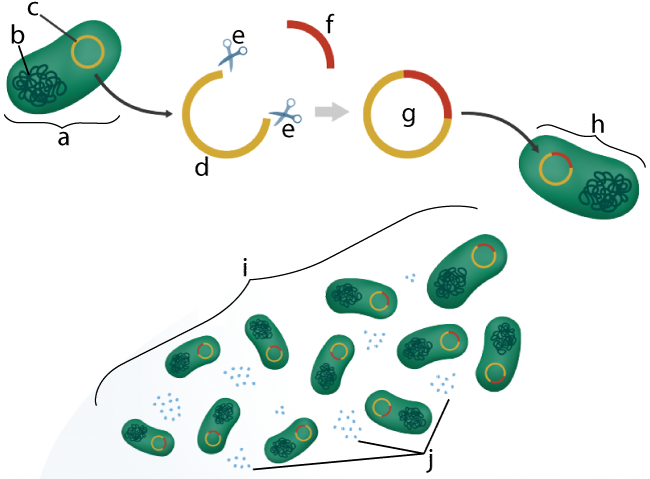
International Engineer is given to Chartered Engineers from signatory countries to the Engineering Mutual Fund Agreement. A professional engineer should seek this title for many reasons. WFEO is a supporter of this initiative. IAEA members have professional competencies that can be recognized worldwide. The title is also available to professional engineers who have a Master of Science (Engineering) from a U.S. college.
IntPE refers to Chartered Engineers.
IntPE (International Professional Engineer), a worldwide title that Chartered Engineers may obtain, can increase their chances to be admitted into national engineering registers. It is awarded by the Council for International Engineering Practice, (CIEP) in America. IntPE can only be obtained by members of the Institution of Engineering and Technology. IntPE also requires an accredited degree, seven years' post-grad experience, continuing professional education, and a continuing professional development. A fee of PS105 is required for initial registration and a renewal fee of PS60 every five years.

It is an acronym for International Professional Engineer
If you want to become a professional engineer, you might consider becoming an International Professional Engineering (IPE) registrant. You can also use this title as long as you are registered on the International Register. Some countries may limit the use of this title. You should consult your country's laws to see if you are allowed to use the title. Otherwise, you can't use the title internationally.
It is a title which is given to Chartered Engineers from each signatory of EMF Agreement
According to the agreement, Chartered Engineers from a country that signs the Agreement may practice in another member state. This is called "cross-licensing". Other signatory countries allow Chartered Engineers to use the international engineering title. A member state must follow the agreement and must accept it before practicing in another nation.
It is a title bestowed on Chartered Engineers in Canada
Visit the EngineerHere website to learn more about becoming a Chartered Engineer Canada. It was created for international engineering graduates. It is an independent, national organization and has no power over any individual associations. In Canada, you must register to become a Chartered Engineer. At least four years experience is necessary to become a Chartered Engineer Canada.
It is a title given to Chartered Engineers in The Netherlands
The title 'International engineer' is available to Chartered Engineers. This title, although not recognized in national legislation is recognized by the Privy Council of the United Kingdom. The bearer of this title is exempt from additional examination within the European Union. In the Netherlands, Chartered Engineers can use the suffix ing' after the end of their names. Chartered Engineers can also use a logo to indicate their professional status. It is used on business cards, letters, and other correspondence.

It is a title that has been awarded to Chartered Engineers in Japan
The Japanese government has recognized Chartered Engineers in the United States as a "highly skilled" professional. To be awarded the International Engineer title, a person must have a Bachelor's degree or an equivalent degree from a foreign institution. The International Engineer title requires language proficiency. Some engineering positions require some level of proficiency in Japanese, but some organizations have made it easier. Students at the Kyoto University of Advanced Science are provided with free Japanese language classes alongside their degree.
FAQ
How much do engineers make per hour?
This can vary from person to person, and company to company. The average annual salary for a software engineer in the entry level category is $60,000 per annum. After working for a while, this number can reach over $100,000.
What types of jobs can I find if I major in engineering?
Engineers can work in nearly every industry: manufacturing, transportation and energy, finance, government and education.
Engineers who are specialists in a particular field can often find employment at certain companies or organizations.
An example of this is that electrical engineers can work for telecommunications firms, medical device makers, or computer chip manufacturers.
Software developers could work for websites and mobile app developers.
Computer programmers could work for tech companies like Google or Microsoft, Apple, Amazon or Facebook.
What is a Mechanical Engineer?
A mechanical engineer is responsible for designing machines, tools, products, processes, and vehicles that are used by people.
Mechanical engineers use mathematics, physics, and engineering principles to create practical solutions to real-world problems.
A mechanical engineer can be involved in product design, production, maintenance quality control, research, testing or sales.
Which engineering choice is best for women?
Girls are always looking for a safe place where they can learn how to build a better future for themselves. They need to know that engineering is not just for boys. Engineering can help them to become successful women who are able to contribute positively in society and their families.
Engineering is an exciting career for young women. You can learn skills and knowledge, which can lead you to a fulfilling job. It helps her to gain independence and confidence.
It allows her the opportunity to make a significant impact on people's lives as well as the environment.
This website was created to encourage girls in engineering to apply to college. We want to show them what engineering is all about.
We hope that you enjoy our website and find it useful. Contact us if you need any help.
What does a Chemical Engineer do, and what are their responsibilities?
Chemical engineers combine science, math, engineering, technology, business skills, and science to create chemical processes, products and equipment.
Chemical engineers are able to specialize in many areas, including pharmaceuticals and food processing.
They collaborate closely with scientists and researchers to solve technical problems.
Are there special qualifications required to study engineering in Canada?
No. You only need to get good grades in your GCSEs. Some universities will require applicants to demonstrate certain academic achievement in order to be eligible for enrollment. For example, Cambridge University requires applicants to obtain A*-C grades in Maths, English Language, and Science.
These requirements are not met, so you may need to take additional courses to prepare you for university entrance exams.
You might also need to take additional maths/science subjects and a language course. Ask your school guidance counselors about these options.
Statistics
- Typically required education: Bachelor's degree in aeronautical engineering Job growth outlook through 2030: 8% Aerospace engineers specialize in designing spacecraft, aircraft, satellites, and missiles. (snhu.edu)
- 14% of Industrial engineers design systems that combine workers, machines, and more to create a product or service to eliminate wastefulness in production processes, according to BLS efficiently. (snhu.edu)
External Links
How To
How to Use an Engineering Ruler
Engineers use an engineering ruler to measure distances. Engineers have been measuring distances since ancient times. Around 3000 BC, the world's first measured device was developed.
Although rulers have been around for a long time, they are now much more common in modern times. The most common ruler in modern times is the metric one. These rulers have a marking in millimeters (1 mm to 0.039inches). Metric rulers are generally rectangular in form and available in many sizes. Some rulers also include centimeters, millimeters, and graduations. For example, 1 cm equals 2.54 mm.
You won't find engineers today using a traditional manual ruler. They would use a digital version, which measures in millimeters. It works just like a regular scale but with markings that correspond to different length units. Find out more information about them here.